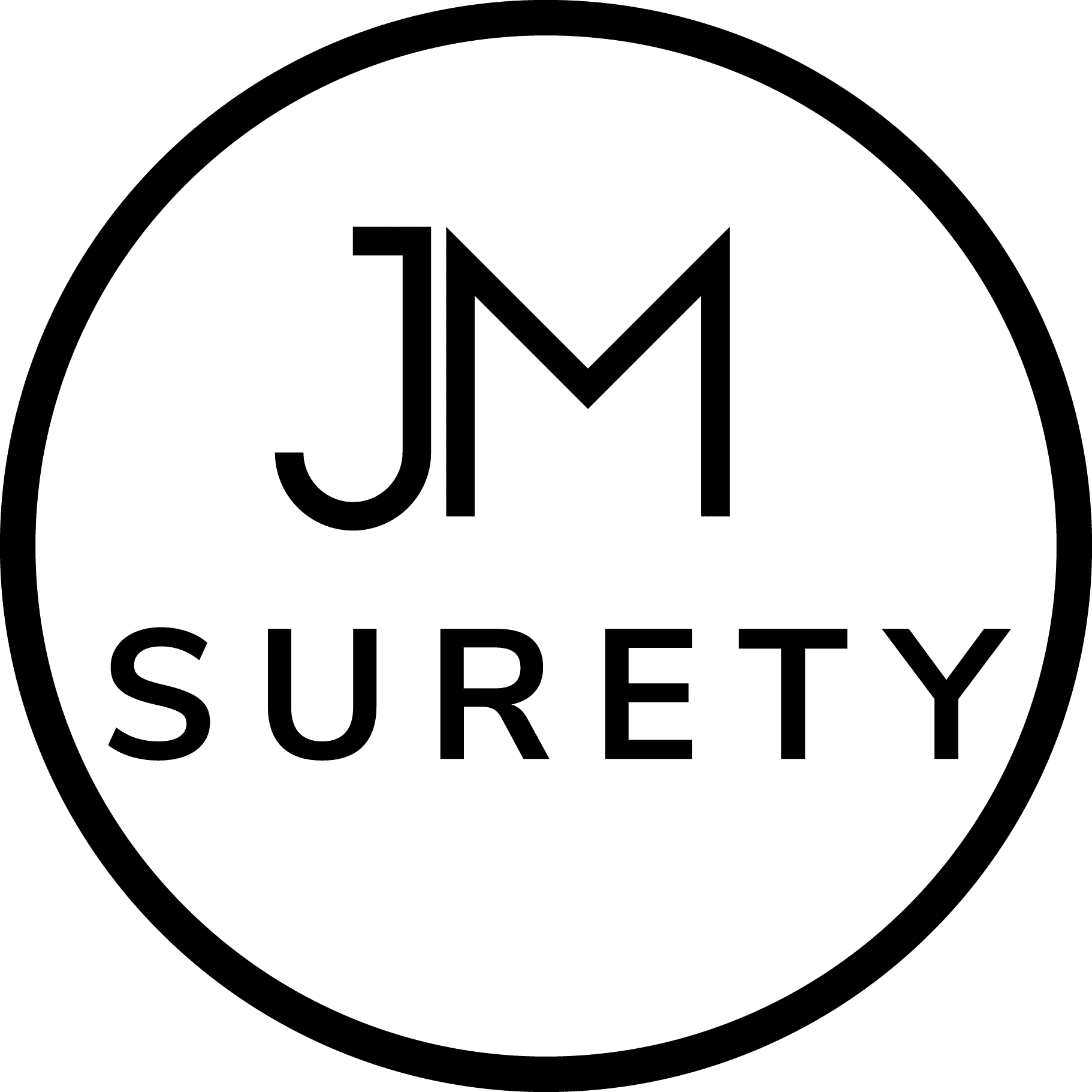A Surplus Lines Broker Bond is a crucial requirement for brokers and agents who help clients secure insurance policies from surplus lines insurers—those not licensed within a given state but authorized to provide specialized coverage. This bond ensures compliance with state regulations, protects consumers from financial risk, and guarantees that brokers remit taxes and fees accurately. Whether you’re navigating non-standard or high-risk insurance markets, a Surplus Lines Broker Bond is essential for maintaining trust and meeting your legal obligations.
What is a Surplus Lines Broker Bond?
A Surplus Lines Broker Bond is a type of surety bond required for brokers and agents who arrange insurance policies through surplus lines insurers—carriers that are not licensed in a particular state but are authorized to provide coverage for unique or high-risk needs. This bond serves as a guarantee that brokers will adhere to all state laws, including remitting taxes and meeting regulatory requirements.
The bond plays a critical role in protecting policyholders and maintaining industry integrity. By ensuring brokers operate ethically and in compliance with the law, it safeguards consumers and the state against potential financial losses resulting from fraud, negligence, or other improper practices. For brokers, the Surplus Lines Broker Bond is not just a legal obligation but a key component of building trust and credibility in the insurance marketplace.
Who Needs a Surplus Lines Broker Bond?
A Surplus Lines Broker Bond is required for professionals who facilitate non-standard or high-risk insurance policies. Specifically, this bond is necessary for:
- Surplus Lines Brokers and Agents: Those responsible for placing insurance policies with surplus lines insurers, which are carriers not licensed in the state but authorized to provide coverage for unique or high-risk scenarios.
- Brokers Working with Non-Admitted Insurers: Individuals navigating the surplus lines market to help clients secure specialized insurance options unavailable in the standard market.
- Agents Complying with State Licensing Requirements: Professionals seeking to maintain their licenses and meet state-specific legal obligations to operate legally and ethically.
If you’re brokering coverage from surplus lines insurers, this bond ensures you’re not only compliant but also operating with the financial assurance that protects your clients and the state.
Why is a Surplus Lines Broker Bond Required?
A Surplus Lines Broker Bond is mandated to uphold the integrity of the surplus lines insurance market and protect all parties involved. Its requirements serve several key purposes:
Regulatory Compliance
The bond ensures that brokers adhere to state-specific surplus lines laws and regulations, maintaining accountability within the industry. By meeting these standards, brokers demonstrate their commitment to ethical practices and legal obligations.
Financial Protection
This bond acts as a safety net for consumers and the state, providing recourse in case of broker misconduct, such as fraud, negligence, or failure to meet legal responsibilities. It protects policyholders and regulatory agencies from potential financial harm.
Tax and Fee Accountability
Surplus lines brokers are responsible for collecting and remitting taxes and fees associated with surplus lines insurance policies. The bond guarantees that these financial obligations are fulfilled accurately and on time, safeguarding state revenues and preventing financial discrepancies.
By requiring this bond, states ensure that surplus lines brokers operate responsibly, fostering trust and stability in the insurance marketplace.
State-Specific Requirements
The bond amount and regulations for Surplus Lines Broker Bonds vary by state, reflecting unique legal and compliance needs. Below are examples of requirements for key states:
California
Surplus lines brokers must maintain a bond of $50,000 to secure their license and ensure compliance with state laws
Texas
Surplus lines brokers in Texas have the option to either obtain a surety bond or meet a minimum net worth requirement, which varies based on factors like annual gross revenue
Florida
Brokers must either secure a surety bond or maintain alternative security such as cash or securities. The bond amount is determined based on premium volume and policy count, with higher amounts required for brokers handling larger premiums
It’s essential to note that requirements, including bond amounts and application processes, can differ significantly depending on the state where you operate. Brokers should confirm the specific obligations in their jurisdiction to ensure full compliance. Consulting a surety bond provider, like JM Surety, can simplify this process by providing state-specific guidance and support.
How to Get a Surplus Lines Broker Bond
Obtaining a Surplus Lines Broker Bond is a straightforward process, but it requires attention to detail and proper documentation. Follow these steps to get bonded:
- Apply through a Surety Bond Provider: Choose a reliable surety bond provider, like JM Surety, that specializes in surplus lines broker bonds.
- Submit Required Documentation: Provide necessary information such as your licensing details, financials, and any other state-specific requirements for bonding.
- Receive a Quote and Pay the Premium: After assessing your application, the bond provider will give you a quote based on your qualifications. Pay the premium to proceed with the bonding process.
- Get Bonded and Maintain Compliance: Once approved, you will receive your bond. It’s crucial to stay compliant with all state laws and regulations to keep your bond active and avoid penalties.
JM Surety offers fast approvals and competitive rates to ensure you can quickly meet your bonding requirements. They will guide you through each step, helping you remain in compliance with state laws while providing cost-effective bonding solutions.

Cost of a Surplus Lines Broker Bond
The cost of a Surplus Lines Broker Bond varies depending on several factors, including:
- Bond Amount Required by the State: The required bond amount differs by state, with some states requiring higher amounts for brokers handling larger premiums or risks.
- Broker’s Credit Score and Financial History: Your creditworthiness plays a significant role in determining the cost of the bond. Brokers with higher credit scores may receive more favorable rates, while those with lower scores may face higher premiums or additional underwriting requirements.
Typical Surplus Lines Broker Bond Costs:
- The cost of a Surplus Lines Broker Bond generally ranges from 1% to 5% of the bond amount required by the state. For example, if the required bond amount is $50,000, brokers can expect to pay between $500 and $2,500 annually, depending on their credit score and financial profile.
It’s important to note that some states may offer alternatives to surety bonds, which could impact the overall cost. Working with a surety bond provider like JM Surety can help you get a precise quote tailored to your specific needs and qualifications.
FAQs About Surplus Lines Broker Bonds
Get Bonded Today
Need a Surplus Lines Broker Bond? JM Surety makes the process simple. Our team is here to guide you through each step and ensure you’re compliant with state regulations. Don’t wait — apply today or reach out to us for more information.
Apply Now using the form above or call us at (972) 848-0820 to get started today!
Insurance Adjuster and Surplus Lines Broker Bonds
LOWEST RATES AVAILABLE
INSTANT APPROVAL
NO CREDIT CHECK
MULTI YEAR DISCOUNT

OF HAPPY CUSTOMERS
PROFESSIONAL AGENTS COUNTRYWIDE
YEARS OF COMBINED EXPERIENCE
Our Services

Commercial Bonds
Often called a license or permit bond, are typically required by a government entity as a requirement for business or individuals to stay in compliance with regulations.

Contractor Bonds
Used heavily in the construction industry by general contractors as a part of construction law, are a guarantee from a surety to a project’s owner that a general contractor will adhere to the provisions of a contract.

